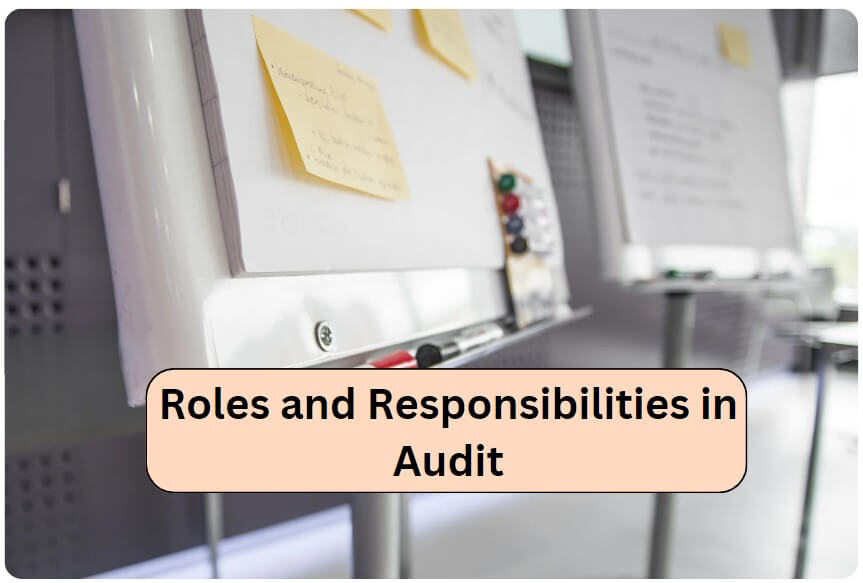When defining someone’s position in regard to the management of the audit, roles and responsibilities are important of course, but they serve more benefits. It also aids in the productivity of the audit teams. Responsibilities in Audit are certain specific tasks and duties that are allocated to you, in this case, solely. In other words, responsibilities include the things that you are supposed to do and you are the one who has to do them! It can also be referred to as a job specification. Role is what a person does on a team. Depending on the needs of the audit, the composition of individual roles within the team can be different.

Auditee’s management responsibility:
- To reach agreement on the audit plan.
- To ensure auditee (s) are made available.
- To resolve logistical problems.
- Overall responsibility to keep the auditors safe.
- Attend the opening and closing meetings.
- To acting the audit report findings.
- To ensure reasonable facilities are made available.
Auditee (s) responsibility:
- To be co-operative and answer questions asked by auditors.
- To provide a sample as requested.
- Try not to have distractions call interruptions etc.
- To assist in identifying areas of improvement.
- To answer truthfully and respectfully.
- Make aware auditors regarding emergency exits.
Lead auditor (s) responsibility:
- Plan the audit by using effective resources.
- Function as a representative of the audit team when communicating with the auditee.
- Organize and direct audit team members.
- Guide and support auditors in training.
- Lead the audit team to reach the audit conclusions.
- Prevents and completes the audit report.
- Maintain confidentially.
- Arrive on time.
Auditor (s) responsibility:
- Support the team leader.
- Prepare checklist.
- Arrive on time.
- Participate in opening meeting.
- Carry out assigned tasks.
- Keep to the timetable.
- Document all findings.
- Keep the auditee informed.
- Assist team leader with reports.
- Safeguard all documents.
- Maintain confidentiality.
- Guides and observers.
- Identifying individuals to participate in interviews.
- Confirming timings.
- Arranging access.
- Safety security rules are known and respected.
- Observing the audit on the part of the auditee.
- Providing clarification or assisting in collecting information.
Don’t Miss This…
- Audit Check List Points for Warehouse
- Audit Check List for Engineering Department
- Audit Check List for Quality Assurance Pharmaceuticals
- Audit Checklist for Quality Control Department in Pharma
- Audit Checklist for Human Resource and Administration
- WHO-GMP Document Check List for Visitors
- Role of IPQA during Line Clearance

Naresh Bhakar is the Founder and Author at Pharmaguddu.com, bringing his extensive expertise in the field of pharmaceuticals to readers worldwide. He has experience in Pharma manufacturing and has worked with top Pharmaceuticals. He has rich knowledge and provides valuable insights and data through his articles and content on Pharmaguddu.com. For further inquiries or collaborations, please don’t hesitate to reach out via email at [email protected].
